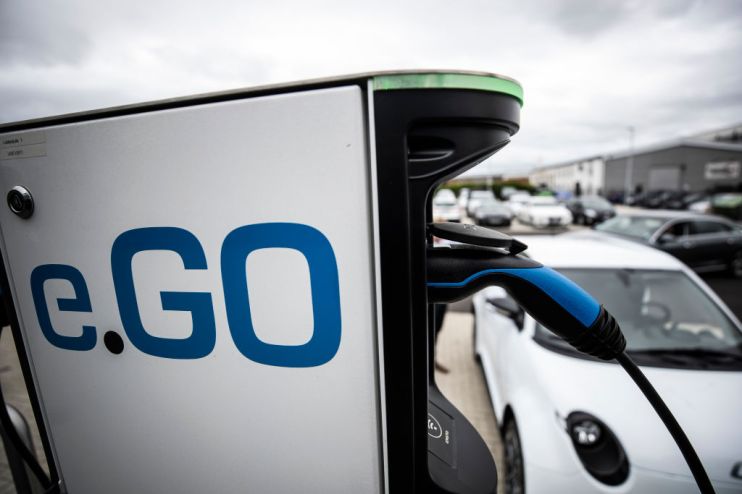COP26: Government brings polluting car ban forward to 2035

The government’s decision to bring forward the ban on petrol, diesel and hybrid cars to 2035 has drawn mixed reactions ahead of Glasgow’s COP26 summit.
Previously, the government had planned to phase out petrol, diesel and hybrid cars by 2040 as part of its aspiration for the UK to be carbon neutral by 2050.
But the Prime Minister today announced the earlier target as a prelude to the COP26 summit taking place in Glasgow in November.
Car industry lobbyists have warned it will take more than just targets to become carbon neutral but those representing the energy industry say the UK is well placed to take a lead in this area.
“It’s extremely concerning that the government has seemingly moved the goalposts for consumers and industry on such a critical issue”, Mike Hawes, head of the Society of Motor Manufacturers and Traders (SMMT) said.
Hawes emphasised that the industry is already working hard to develop electric vehicles, with 34 coming on the market this year. And he called for clarity on whether the government will continue with the plug-in car grant, which ends in 60 days.
The SMMT said the government must ensure changes in the industry are sustainable so people of all incomes can adapt to the changes without undermining current efforts to develop hybrid vehicles.
Though supportive of the move, price comparison firm comparethemarket.com have also said the changes must be accompanied by improvements in electric vehicle infrastructure.
Read more: Government doubles funding for electric car charge points to £10m
Energy UK however, strongly welcomed the 2035 ban as it has long called for the target to be brought forward.
Interim chief executive Audrey Gallacher said:
We welcome this move by the government which we hope signals the start of an ambitious programme across government, in partnership with business, to enable us to reach net-zero by 2050 – something we think is not just achievable but that will bring huge benefits to the environment, the economy and to customers.
Igloo Energy said vehicles themselves are only part of the problem and that the emphasis needs to be on generating electricity without the use of dirty fuels.
One think tank has said however that the revised target is not ambitious enough.
The Institute for Public Policy Research (IPPR) claims that the government’s own advisers support an earlier date for shifting to all electric vehicles of 2030 as this will benefit the UK industry in addition to cutting costs for motorists and improving air quality.
Motor industry campaigners however have not at all welcomed the change, FairFuel UK has said it is unnecessary and the UK is not equipped to move to electric vehicles in this timeframe.
The need to make the automotive sector cleaner and more sustainable has become a key facet of efforts to combat climate change in recent years and the government’s announcement comes at the launch event for November’s COP26.
Transport secretary Grant Shapps, said: “This government’s £1.5bn strategy to make owning an electric vehicle as easy as possible is working – last year alone, a fully electric car was sold every 15 minutes.”